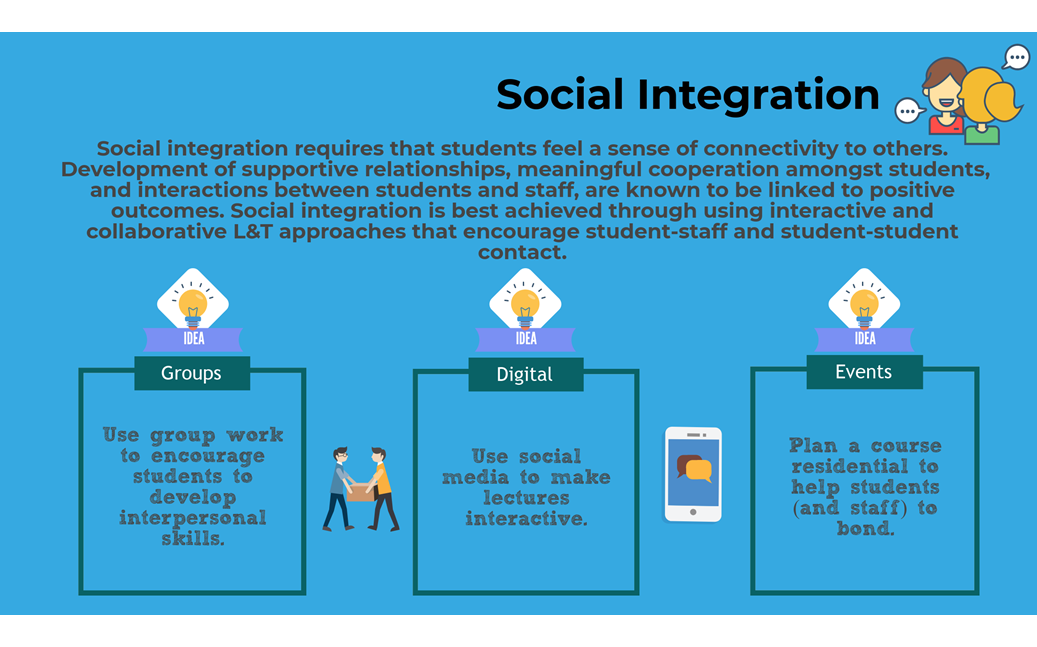Leeds Beckett University - City Campus,
Woodhouse Lane,
LS1 3HE
social integration
Development of supportive relationships, meaningful interactions and cooperation among students, and between students and staff, are known to be linked to positive outcomes (Kandiko & Mawer, 2013; Chickering & Gamson, 1987).
‘Social engagement takes place in the social sphere of the institution, including social spaces, clubs and societies, the students’ union, in student accommodation and through shared living arrangements’ (Thomas, 2012 p. 14). Early formal and informal staff-student, and student-student contact is a factor in supporting social integration. “Relationships between staff and students and peers promote and enable student engagement” (Thomas, 2012, pg 8). Additionally, whilst working effectively with others and learning collaboratively can be a powerful facilitator of engagement (Wentzel, 2009), interactions with diverse peers have been shown to have particularly positive personal and social outcomes (Villalpando, 2002; Chang, Denson, Saenz & Misa, 2006).
Contact with staff has also been shown to have a positive impact on student levels of engagement and their feelings of self-efficacy (Pike et al, 2010; Yorke & Thomas, 2003; Leese, 2010). The academic advisor or online learning tutor can be significant in ensuring the integration of students, as can academic librarians and learning support staff. Both the number and nature of student-staff interactions is important.
The course team is ideally placed to ensure that new students are given opportunities to fully socially integrate onto their course. A learning environment that prioritises supportive teaching approaches, scaffolded relationships between each student and their teachers and peers and foster social connections, can support social integration of students (Pickford, 2016).
There are a number of case studies from Leeds Beckett staff available here showing the activities they have used to support students to socially integrate into their course and university.
The first weeks of many courses, the university induction programmes, and increasingly the pre-entry initiatives are explicitly focused, in many cases, on students ‘getting to know one another’. It is increasingly common for institutions to seek to begin to support social integration before arrival using specific online materials. The ELFYSE report ‘Supporting the First Year Student Experience Through the use of Learning Technologies’ reports that many institutions are developing online materials that are designed to both manage expectations and ease students into their academic and social life.

Che Guevara John - Creative induction / Inclusive design activities
John Allan - Resilience through residentials
Julia Calver & Dan Lomax - Residential positives
Performing Arts team - Inclusive induction project - Light Night

